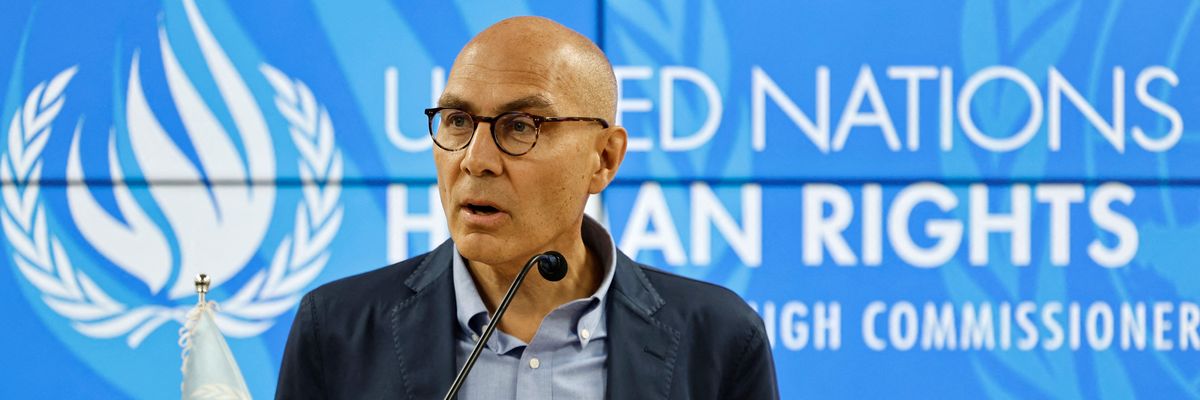The United Nations' top human rights official on Friday demanded an investigation into the Israeli military's bombardment of densely populated areas of the Gaza Strip with "high-impact explosive weapons," a call that came as Israel's forces surrounded Gaza's largest city and reportedly
attacked several hospitals packed with wounded and displaced civilians.
"After four weeks of bombardment and shelling by Israeli Forces in Gaza, the indiscriminate effects of such weapons in a densely populated area is clear," Volker Türk, the U.N. high commissioner for human rights, said in a
statement. "Israel must immediately end the use of such methods and means of warfare, and the attacks must be investigated."
"Considering the predictable high level of civilian casualty and the wide scale of destruction of civilian objects," Türk added, "we have very serious concerns that these amount to disproportionate attacks in breach of international humanitarian law."
Israeli forces have dropped a
staggering number of bombs on Gaza—a territory that's just 140.9 square miles in size—in just over a month. In the first week of bombing following Hamas' deadly October 7 attack, Israel's military hammered the strip with at least 6,000 bombs, decimating civilian infrastructure as it claimed to be targeting militants.
Since October 7, Israeli attacks have killed more than 11,000 people in Gaza, damaged or destroyed
over half of the territory's housing units, and displaced 70% of the enclave's population. Israel's bombing and siege have also forced many of Gaza's hospitals to shut down.
The New York Timesreported last week that Israel "used at least two 2,000-pound bombs" in its recent attacks on Jabalia, a Gaza city that's home to the territory's largest refugee camp.
"Israel's use of such bombs, the second largest type in its arsenal, is not uncommon, and the size is generally the largest that most militaries use on a regular basis," the
Times noted. "Eighty-three countries, including the United States but not Israel, have signed a commitment to refrain 'as appropriate, from the use of explosive weapons in populated areas' because of their likelihood of harming civilians."
Human rights groups have also accused Israel of using incendiary
white phosphorus in Gaza and Lebanon.
The International Criminal Court is
currently investigating war crimes committed in Palestine "by any party."
Türk said Friday that an immediate cease-fire is needed to "deliver food, water, and other essential goods to people who desperately need them and where they need them, throughout Gaza; for all hostages to be released; and to open a path to a sustainable way out of this nightmarish situation in Gaza."
"Stop the violence," said Türk. "Guarantee the safety of humanitarian workers. Provide safe access to ensure humanitarian assistance to all those in need. Make sure people have enough to eat, clean water to drink, medical care, and shelter. Free the hostages. Bring to justice—in line with human rights law—the perpetrators of serious violations."

